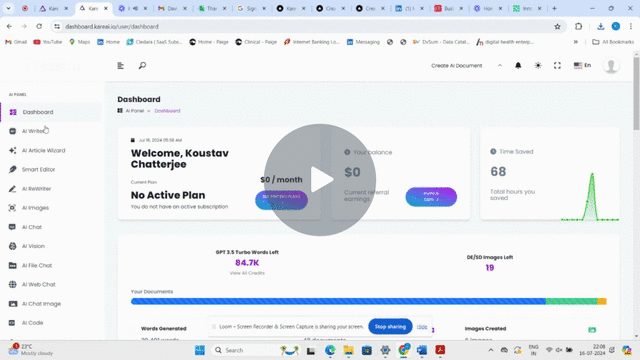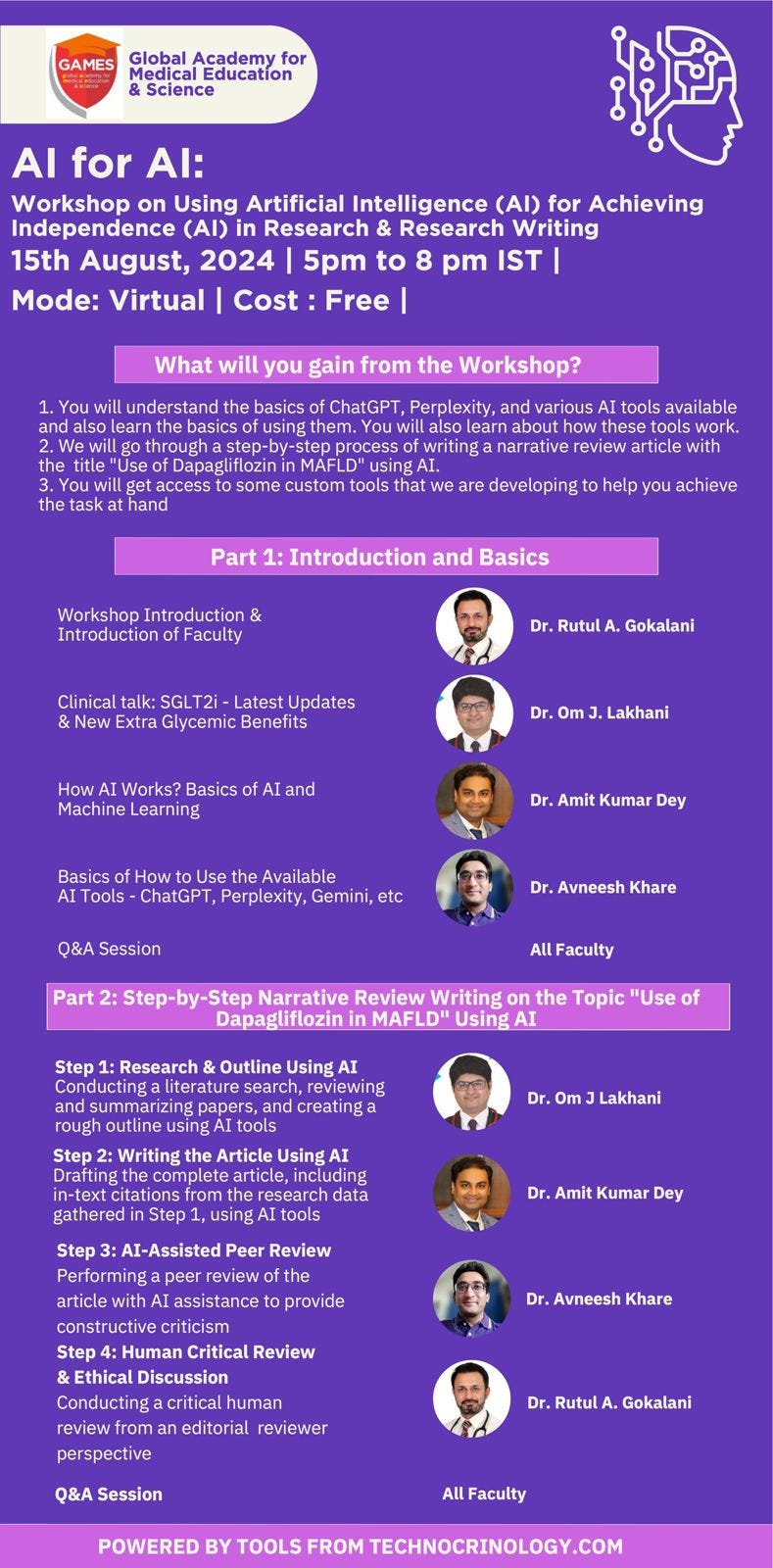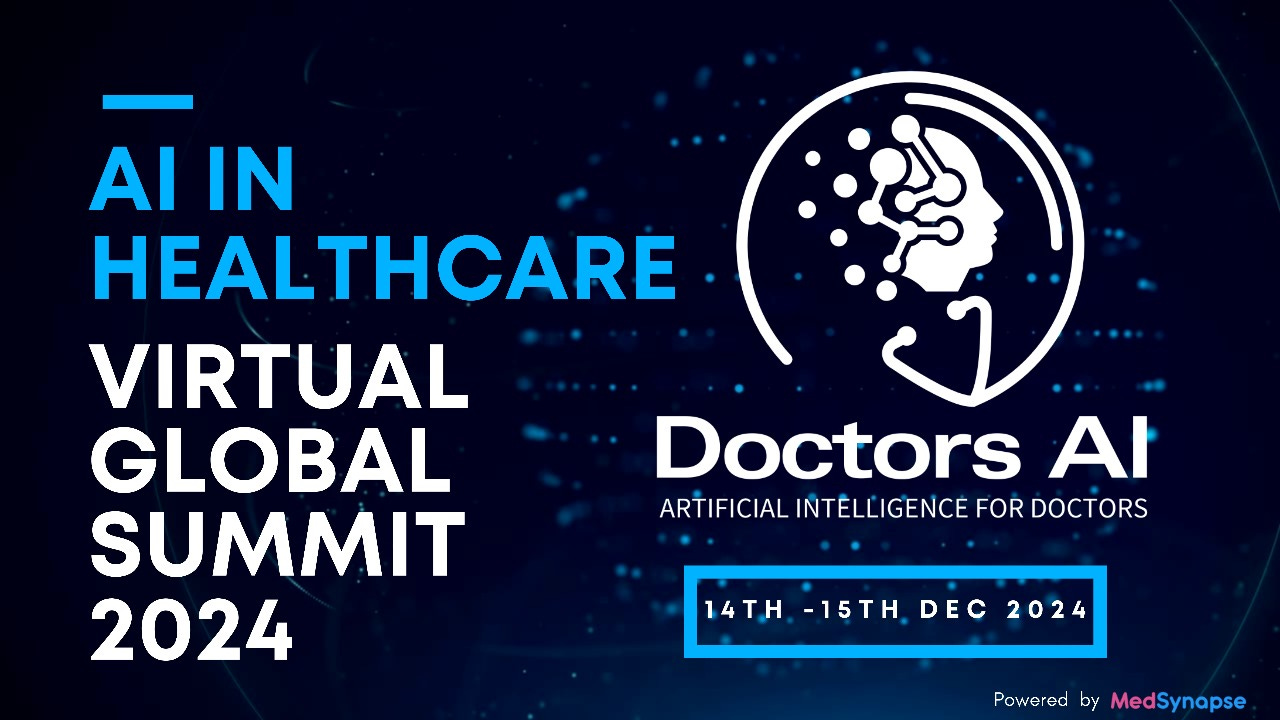📰 From AI-Enhanced Precision Medicine to AI in Medicine Education: Dive into This Week's Med AI Breakthroughs! 🚀
Updates on Artificial Intelligence & Emerging Technologies in Medicine 🤖💊
“The role of AI in medicine is not to replace doctors but to augment their capabilities, allowing them to deliver more precise and personalized care.” — Eric Topol, Cardiologist and Digital Health Pioneer
Dear Med AI Enthusiast,
Welcome to The ‘Med AI’ Capsule weekly newsletter! Here’s your inside look at how AI and emerging technologies are transforming medicine. ⚕
Whether you're a medical professional 👩⚕️, a tech enthusiast 💻, or simply curious 🧠, The 'Med AI' Capsule is for you!
Stay informed 📰 about the latest updates and insights into the world 🌍 of AI in medicine.
Let the adventure begin! I’m thrilled to have you with me. 🚀
In today’s capsule:
5 News Updates
4 Latest Research Papers
3 Industry Innovators
2 Upcoming Events
1 Knowledge Resource
Reading Time: 7-10 minutes
News Updates 📰
1. 🤖 M42 Unveils New Versions of Clinical AI Models for Enhanced Medical Insights
M42, a leading healthcare group under Abu Dhabi's AI conglomerate G42, has launched new versions of its clinical large language models (LLMs), Med42 v2 8B and Med42 v2 70B. These models, built on Meta's LLaMA-3, are now available for review and testing on Hugging Face, aiming to expand access to medical knowledge and improve clinical decision-making.
Why Important: Generative AI is revolutionizing healthcare, with the market expected to reach $21.7 billion globally by 2032. M42's new models promise significant advancements in medical question answering, patient record summarization, and aiding diagnoses. These models are finely tuned to meet the rigorous standards of the healthcare industry, addressing the sector's low tolerance for errors.
Caution: Ensuring accuracy and reliability in AI-driven medical tools remains a challenge. Ongoing evaluation and rigorous testing are crucial to maintain the high standards required for clinical use.
2. 🔍 nference and Takeda Launch AI Initiative to Enhance Precision Medicine for IBD
nference has formed a strategic research alliance with Takeda to leverage artificial intelligence (AI) in optimizing patient care for inflammatory bowel disease (IBD). The collaboration, dubbed Project SUCCINCT, aims to identify personalized treatment approaches and improve care for patients with this chronic gastrointestinal disorder.
Why Important: This partnership harnesses nference's advanced AI models to analyze de-identified electronic health records, offering healthcare providers crucial insights for tailoring treatments. As IBD affects millions globally, AI-driven innovations like Project SUCCINCT could significantly enhance diagnostic accuracy and treatment efficacy, addressing a critical unmet medical need.
“By harnessing AI, we can push beyond the boundaries of what is possible today to empower healthcare providers with information to help tailor treatment selection for patients, precisely when needed.” - Vijay Yajnik, MD, PhD, Vice President, Head of U.S. Medical in Gastroenterology at Takeda
Caution: Ensuring the privacy and accuracy of AI-analyzed patient data is essential. Continuous oversight and refinement are necessary to maximize the initiative's potential benefits.
3. 📰 AI helps physicians stay up to date by summarizing medical research
A study led by KU Medical Center has found that ChatGPT can produce accurate, concise summaries of medical journal abstracts, helping physicians stay updated on the latest research. With global medical knowledge doubling every 73 days, this AI tool can significantly ease the burden on doctors trying to keep up with the influx of new information.
Why Important: The vast amount of new medical literature makes it challenging for physicians to remain current. ChatGPT's ability to generate high-quality, 70% shorter summaries of journal abstracts offers a time-efficient solution, enabling doctors to quickly review and identify pertinent research.
“There are about a million new articles added to PubMed every year. Even if you’re a physician restricting your focus to your field, it can still be many thousands of articles you might think about reading.” - Daniel Parente, M.D., Ph.D., assistant professor of family medicine and community health at the University of Kansas Medical Center.
Caution: While ChatGPT shows promise, it currently lacks precision in determining the relevance of specific articles to particular medical fields. As such, critical medical decisions should still rely on full-text evaluations and professional guidelines.
4. 🧬 Cornell Researchers Enhance AI for Digital Pathology
Researchers from Weill Cornell Medicine and Dana-Farber Cancer Institute have developed specialized AI tools to advance digital pathology. By customizing ChatGPT, they created AI models that accurately respond to questions and assist pathologists in using complex software for analyzing tissue samples.
Why Important: The integration of AI in digital pathology promises to enhance diagnostic accuracy and efficiency. Customized AI tools tailored to specific medical fields can bridge the gap between traditional and digital pathology, aiding pathologists without extensive coding experience.
“We could ask this new system to catch us up on many specific topics or techniques in digital pathology and get results in seconds, with a level of detail, depth and summarization that doesn’t exist in current scientific literature tools or search engines.” - Dr. Renato Umeton, director of Artificial Intelligence Operations and Data Science Services in the Informatics & Analytics Department at Dana-Farber Cancer Institute
Caution: Ensuring AI tools provide precise and reliable information is crucial, especially in specialized fields like digital pathology. Continuous refinement and validation are necessary to maintain accuracy and avoid potential errors.
5. 🎓 University of Alabama at Birmingham Introduces AI in Medicine Master’s Program
Starting in spring 2025, students can enroll in the University of Alabama at Birmingham’s newly approved Master of Science in Artificial Intelligence in Medicine. This program, part of UAB's comprehensive efforts to integrate AI in healthcare, aims to transform medical practices through advanced AI applications.
Why Important: The new master's program will offer practical experience and real-world applications, bridging the gap between data science, machine learning, and medicine. AI's potential to diagnose conditions from medical imaging, among other applications, promises significant advancements in healthcare quality and efficiency.
“If there are individuals who are keen to pursue this path, who lacked that kind of technical prerequisite, we could work with them to acquire the necessary skill set to make them successful in the master’s degree.” - Dr. Rubin Pillay, assistant dean in the Marnix E. Heersink School of Medicine and executive director in the Heersink Institute for Biomedical Innovation
Caution: Ethical and responsible training in AI is paramount, especially when dealing with sensitive patient data. The program emphasizes the importance of developing trustworthy AI systems to ensure safe and effective healthcare practices.
Product Showcase ✨
Are you a healthcare professional looking to optimize your practice with advanced technology? Do you want AI solutions tailored to your specific needs?
Upgrade your practice with custom AI agents from Kare AI, designed to enhance patient care and streamline your workflow!
Training Video - Kare AI - Watch Video
How to Build Custom AI Agent on Kare AI - Watch Video
Perfect for: Physicians, Specialists, Clinics, Hospitals, Medical Researchers, etc.
Why you should try Kare AI:
Personalized AI solutions for your practice
Automate administrative tasks and reduce workload
Seamlessly integrates with existing systems
Interested? Sign up HERE through the special link for Med AI Capsule readers!
Enhance your healthcare practice with Kare AI's state-of-the-art custom AI agents. Take advantage of this exclusive opportunity to transform your practice with cutting-edge AI technology!
Latest Research Papers 🔬
An interpretable deep learning framework for genome-informed precision oncology | Nature Machine Intelligence - presents a deep learning framework that improves drug response predictions in precision oncology by learning cellular states perturbed by somatic genome alterations.
AI-based selection of individuals for supplemental MRI in population-based breast cancer screening: the randomized ScreenTrustMRI trial | Nature Medicine - demonstrates that AI-based selection for supplemental MRI in breast cancer screening significantly improves cancer detection rates and cost-effectiveness compared to traditional methods.
A deep learning-based model to estimate pulmonary function from chest x-rays: multi-institutional model development and validation study in Japan - The Lancet Digital Health - developed and validated a deep learning-based AI model that estimates pulmonary function, specifically FVC and FEV1, from chest x-rays, showing high agreement with traditional spirometry results and offering a viable alternative for patients unable to undergo spirometry.
JMIR Medical Education - Curriculum Frameworks and Educational Programs in AI for Medical Students, Residents, and Practicing Physicians: Scoping Review - reviews AI curriculum frameworks and educational programs for medical students, residents, and practicing physicians, highlighting the need for structured AI education in medical training.
Industry Innovators 👨🏭
Biofourmis - partners with healthcare and pharmaceutical sectors to optimize care delivery and drug development using technology, improving patient engagement, reducing readmissions, and addressing staffing shortages for better outcomes.
Bluedot - provides infectious disease intelligence using AI to monitor, predict, and respond to global outbreaks, helping governments, healthcare, and businesses mitigate health, economic, and social disruptions.
BrightInsight - offers a platform for life sciences companies to develop and scale digital health solutions, including companion apps, algorithms, and connected products, supporting disease management, SaMD, and data insights for improved patient care and business outcomes.
Upcoming Events 🧑💻
Stay tuned for more updates and details on how to register! 🚀
Knowledge Resource 📚
In the AI Grand Rounds podcast, Dr. Rohaid Ali and Dr. Fatima Mirza discuss their work using AI in healthcare, including simplifying surgical consent forms with ChatGPT and creating a custom voice for a patient using OpenAI's Voice Engine.
They emphasize responsible AI use, balancing personal and professional lives, and ensuring equitable access to AI technologies. The episode ends with advice for early-career doctors interested in AI, highlighting the importance of ensuring equitable access to these technologies.
Let’s wrap it up with a poll! 📊
Your feedback is crucial to me, as it helps me understand your interests and improve my offerings. I would appreciate it if you could take a few minutes to share your thoughts about what you've enjoyed and what you think I could do better.
Stay tuned for our upcoming editions as we explore the latest breakthroughs and dive deep into the transformative power of artificial intelligence and emerging technologies, shaping a healthier future. 🚀
Warm regards,

Disclaimer: The content in this newsletter was partly curated and summarised using AI LLMs, which can make mistakes. Please check all important information. For any issues or inaccuracies, please notify me on avneeshkhareonline@gmail.com.








